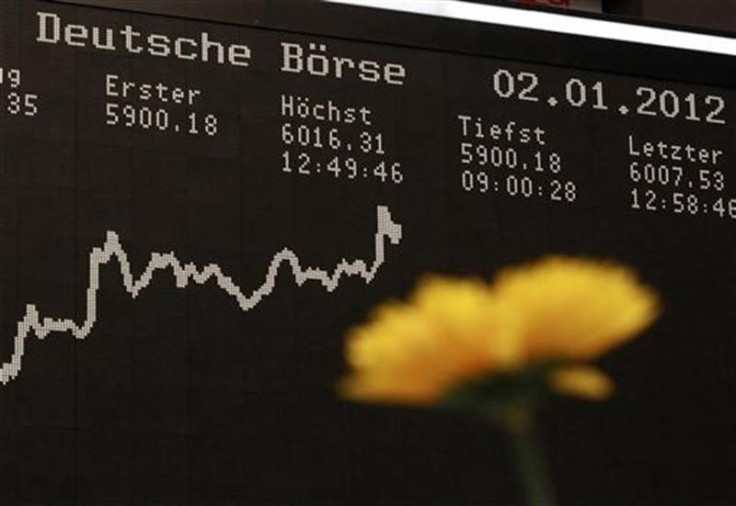European Markets Gain On Stimulus Hopes

Most European markets rose Friday amid hopes of stimulus measures to boost the economy after the European Central Bank promised to take steps to protect the euro.
The German DAX 30 index was up 0.13 percent or 8.83 points to 6591.79. Shares of Linde AG advanced 0.89 percent and shares of Daimler AG rose 0.35 percent.
The French CAC 40 index rose 0.37 percent or 11.91 points to 3219.03. Shares of Renault SA climbed 2.75 percent and shares of Total SA advanced 1.52 percent.
London’s FTSE 100 index was up 0.14 percent or 7.71 points to 5580.87. Shares of Barclays PLC advanced 4.26 percent and shares of Petrofac Ltd were up 0.91 percent.
Spain's IBEX 35 rose 0.38 percent or 23.90 points to 6392.70. Shares of Bankia SA climbed 3.07 percent and shares of Bankinter SA advanced 1.38 percent.
Spanish and Italian bond yields fell sharply and the euro rose after the ECB President Mario Draghi pledged to do whatever it takes to save the euro zone from a collapse. His accompanying assessment that the size of sovereign premium hampers the functioning of the monetary policy transmission channel is a strong hint that the ECB is considering bringing back to life its securities markets programme (SMP), which has been lying dormant for the last six months.
However, investor sentiment could turn out weak as the ECB may not be in a position to help governments finance their budget deficits by providing banks with funds to buy the sovereign debt. This will mean that the onus will remain firmly on governments to address their deep-seated fiscal and competitiveness problems.
“What’s more, Draghi’s important qualification that the ECB will act within its mandate would appear to rule out more substantial measures such as the granting of a banking license to the ESM so that it can borrow from the ECB to significantly boost its firepower,” Jonathan Loynes, an economist at Capital Economics, said.
© Copyright IBTimes 2025. All rights reserved.





















